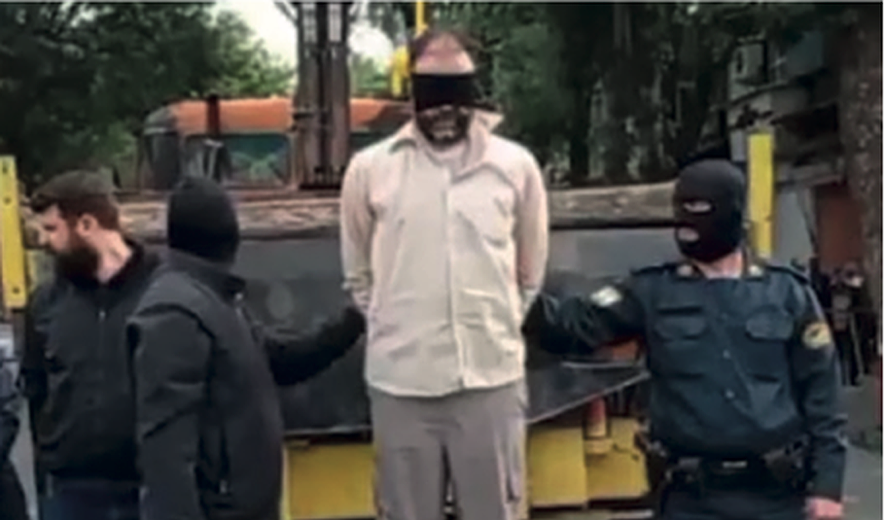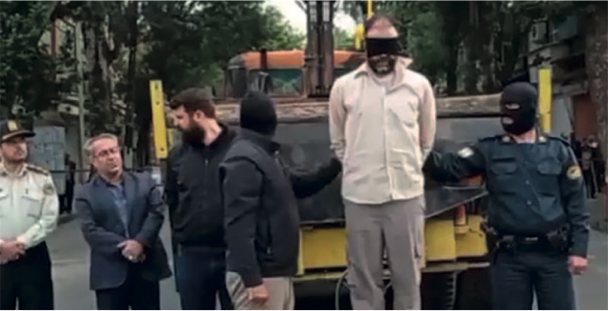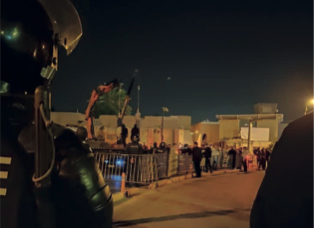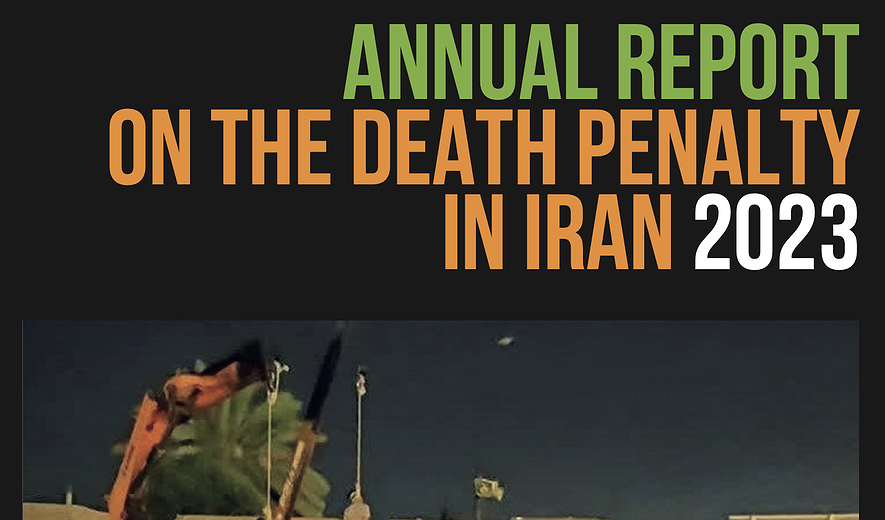Public Executions in 2023

This is an extract from the 2023 Annual Report on the Death Penalty in Iran. To read the full report, please click here.
For 45 years, Iran has been one of the few countries to carry out executions in public spaces. Public executions have been repeatedly criticised by the international community and domestic civil society in Iran. Both the UN Secretary General and the Special Rapporteur on the Human Rights Situation in the Islamic Republic of Iran have expressed concern about the continued practice of public executions. During Iran’s second UPR,[1] the government rejected recommendations aimed at ending public executions.[2] Criticism against the Islamic Republic’s practice of public executions has also been emphasised in the reports of the Special Rapporteur.[3]
Following massive media attention and international pressure in 2007-2008, then Head of Judiciary, Mahmoud Shahroudi issued an order calling for limitation in the use of public executions. Consequently, the number of public executions in 2008-2010 were relatively lower than the previous years. However, following the post-election protests of 2009, the number of public executions increased dramatically after 2010, reaching an annual average of 50 to 60 between 2011-2015. With increased international focus again, the number of public executions decreased to 33 in 2016, 31 in 2017 and then 13 in 2018 and 2019. Public executions dropped significantly during the COVID-19 pandemic, with one execution reported in 2020 and none in 2021. In 2022, two people were publicly hanged. The number more than tripled in 2023, with seven public executions.

The diagram above shows public executions since 2008. The number of public executions in 2020 was significantly lower due to COVID-19 pandemics restrictions, and no public executions were recorded in 2021. Since 2022, public executions have started rising, with numbers more than tripling in 2023 compared to 2022.
Rising number of public executions
In 2023, seven men were hanged in public spaces across the country.

Soleiman Salamat was publicly hanged in Maragheh, East Azerbaijan province, for charges of efsad-fil-arz (corruption on earth) through “widespread corruption and prostitution” on 25 May 2023.[4]
An unnamed man was publicly hanged in a park beach in Bandar-e-Deylam, Khuzestan province, on 18 June 2023. He was sentenced to qisas for the murder of two policemen on 29 March 2022.[5]

Afghan nationals Mohammad Ramez Rashidi and Naeim Hashem Ghotali were publicly hanged in Shiraz for charges of efsad-fil-arz (corruption on earth) and baghy (armed rebellion) in the “Shahcheragh” case on 8 July 2023.[6]
Mohammad Ghaedi Nasab and Sadegh Mahmoudi Baram were publicly hanged for charges of moharebeh and efsad-fil-arz in Fouladshahr, Isfahan province, on 13 July 2023.[7]
Another unnamed man was publicly hanged in Najaf Abad, Isfahan on 28 December 2023. He had also been sentenced to qisas for the murder of a policeman.[8]
According to a survey commissioned by Iran Human Rights and the World Coalition Against the Death Penalty in 2020, more than 86% of the 20,000 participants living in Iran said that they are opposed to public executions.[9]
[1] A/HRC/DEC/28/108, https://ap.ohchr.org/documents/dpage_e.aspx?si=A%2FHRC%2FDEC%2F28%2F108
[2]https://www.ohchr.org/sites/default/files/lib-docs/HRBodies/UPR/Documents/Session20/IR/IranMatriceRecommendations.doc
[3] https://www.ohchr.org/en/documents/country-reports/ahrc5267-situation-human-rights-islamic-republic-iran-report-special
[4] https://iranhr.net/en/articles/5943/
[5] https://iranhr.net/en/articles/6003/
[6] https://iranhr.net/en/articles/6042/
[7] https://iranhr.net/en/articles/6054/


